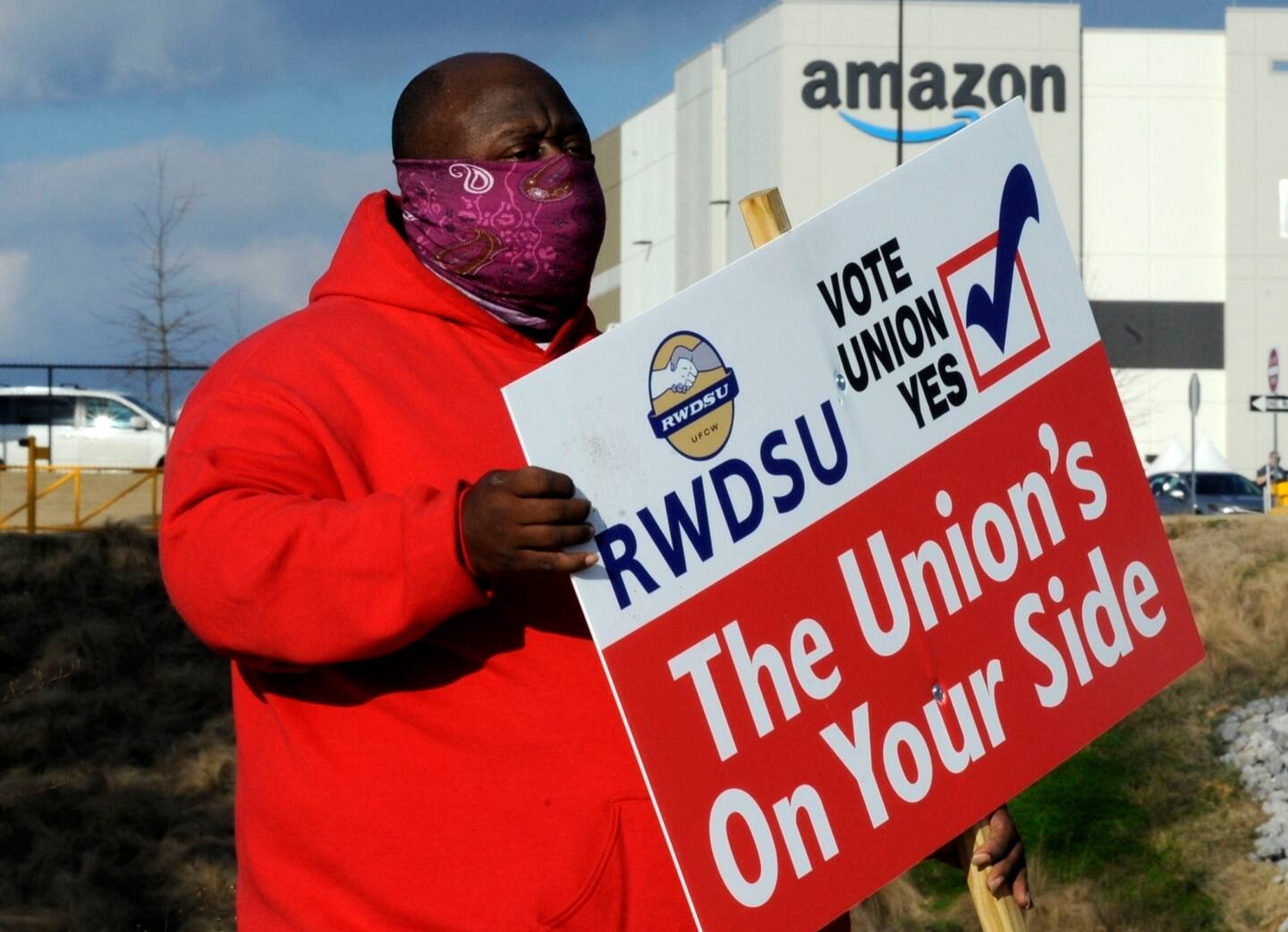Unions have endured body blows for far too long. But the tide is turning.

This is a moment of immense promise: By elevating pro-labor legislation and policies, we have the opportunity to revive union power and launch a new labor movement for the 21st century.
Strengthening unions would play a critical part in tackling our country’s staggering inequality. As proposals to raise the minimum wage to $15 face an uncertain future, expanding the ranks of organized labor would give more people a living wage. The Labor Department reports unionized workers’ median earnings are about 19 percent higher than those of nonunion workers. Unions also shrink wage gaps for women and for workers of color.
Yet the number of unionized workers in America has been decimated in recent decades by a variety of factors, including corporations’ union-busting efforts. We’re seeing this play out in Bessemer, where Amazon is discouraging warehouse employees — who are predominantly Black — from organizing. (Amazon founder and chief executive Jeff Bezos owns The Post.) Reports indicate the trillion-dollar company has paid high-priced consultants nearly $10,000 a day, while engaging in tactics such as establishing an anti-union website, sending anti-union texts to workers, hanging anti-union banners at its complex and posting anti-union fliers in its bathrooms.
That’s why it was so important for Biden to emphasize that “no intimidation, no coercion, no threats, no anti-union propaganda” should surround union elections and to reiterate the federal government’s legal responsibility to support collective bargaining.
For too long, however, the federal government ignored that duty. Amazon’s actions are just one example of a larger, coordinated and well-funded effort against organized labor, led by big businesses and aided by anti-union lawmakers and court rulings. As a result, 27 states — many in deep red parts of the country — have now passed “right-to-work” laws. Despite the name, these laws aren’t designed to support workers. They’re designed to support corporations by hindering unions’ ability to organize.
Take the situation in Alabama. Even if Amazon workers in Bessemer decide to form a union, their state’s right-to-work law would allow employees at the warehouse to opt out of membership. All employees benefit from collective bargaining, regardless of whether they officially belong to their union. But by allowing workers to opt out of paying dues, employers undermine the financial stability of unions and undercut their long-term ability to fight for its members.
These conditions underscore the vital need to pass the Pro Act and reverse the right’s anti-union agenda. The bill invalidates right-to-work laws for all private-sector employers and expands the power of the National Labor Relations Board to punish firms that carry out union-busting and other unfair labor practices. It would also mandate that all private companies follow a critical practice known as “card check” — and negotiate collective bargaining agreements with their employees if a majority vote to unionize.
Biden has already come out strongly in favor of the Pro Act. And many labor allies lauded his decision to support Amazon workers in Bessemer. But for Biden to truly be a “Working-Class Hero” — as the American Prospect’s Harold Meyerson called him — he’ll need actions as well as words. That means not just verbal support for the Pro Act but also making its passage an administration priority. Beyond this bill, the Biden White House can place workers’ rights at the center when negotiating future trade agreements. Fortunately, Katherine Tai, Biden’s nominee to serve as the U.S. trade representative, has already signaled a desire to do so.
With a resilient labor movement providing a wind at the back of the president and the Democratic Party, now is the time to build pro-labor momentum at every level. Revitalizing unions can help address inequality, expand racial equity and rebuild America’s middle class in the wake of the covid-19 pandemic. If we want to foster shared prosperity, it’s time for us to embark on a new campaign to restore and advance the power of organized labor.
Read more:






